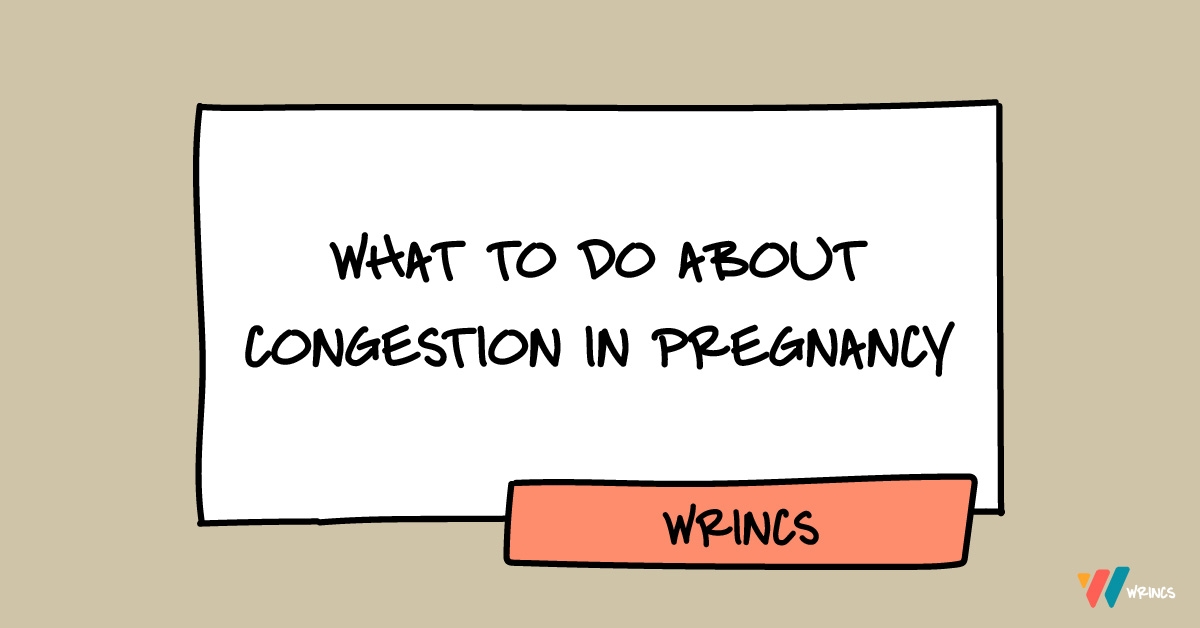Mrs Wrincs has been a little stuffy, but nothing too bad. It would be good to clear those minor sniffles and be ready if it gets worse. So, we wanted to know what we can do about congestion in pregnancy.
I Am Not An Expert – This Is Not Advice
Disclaimer: I’m not an expert and don’t know what I’m doing. Even official advice can vary in different parts of the world. This is not an “Ultimate Guide To Everything You Should Know About Congestion In Pregnancy”. This is just me and my wife picking the next logical thing to figure out, researching it as best we can and writing it here to organise our thoughts. If it’s helpful to anyone, great. You should do your own research, speak to professionals (when possible) and don’t be offended if we didn’t come to the same conclusions you did. Please let me know if you have advice or disagree. Try not to call me names if I’ve said something stupid. But, if it entertains you, I can take it, so make it good.
We’re (my wife and me) doing this research together and I’m just the one who’s posting it.
Congestion In Pregnancy
Congestion (also known as non-allergic rhinitis) can be a minor inconvenience or can seriously affect your quality of life. You can check out the full NHS page here.
Symptoms
Symptoms of non-allergic rhinitis can include:
- a blocked nose
- a runny nose
- sneezing
- mild irritation or discomfort in and around your nose
- reduced sense of smell
Additionally, in rare cases, non-allergic rhinitis can also cause a crust to develop inside the nose, which may:
- produce a foul-smelling odour
- cause bleeding if you try to remove it
Treatments
In some cases, avoiding certain triggers and undertaking self-care measures, like rinsing your nasal passages, may relieve your symptoms. Rinsing your nasal passages can be done using either a homemade solution or a solution made with sachets of ingredients bought from a pharmacy.
You may also want to try:
- drinking plenty of hydrating fluids.
- elevating your head with extra pillows when you lie down to rest or sleep.
- take a warm shower and stay in the steamy bathroom. Steam is soothing and temporarily relieves congestion. You can also soak a flannel with hot water, hold it up to your face, and breathe. Remember to be careful with hot baths while pregnant.
- get some light or moderate exercise.
In other cases, you may need to take a medicine, such as a nasal spray containing steroids. Steroid nasal sprays help to relieve the congestion. But you need to use them over several weeks for them to work properly. Steroid nasal sprays are normally safe to use while breastfeeding and during pregnancy. But it’s a good idea to get medical advice first.
When To See Your Doctor For Congestion In Pregnancy
See your GP if you have symptoms of non-allergic rhinitis and they’re affecting your quality of life.
Non-allergic rhinitis can be difficult to diagnose, as there is no test to confirm it. Your GP will first ask about your symptoms and medical history.
They may then carry out a blood test to check if you have an allergy. Or they may refer you to a hospital clinic for more specific tests for allergies, including a “skin prick test”.
If the test results suggest you do not have an allergy, you may be diagnosed with non-allergic rhinitis.
How Mrs Wrincs Feels
She hasn’t struggled too badly with congestion issues. If it gets worse, we’re on top of it and she’s happy about that. There isn’t much more to say about this one.
Everyone’s Different
Just to reiterate: This is our first child and I’m just researching and doing my best. This is just a log and breakdown of the information we’ve found and how we’ve interpreted it. I’m not an expert (very far from it); I’m just doing my best for our new family. If it’s useful to anyone, that’s great. This is not the “right answer”. This is just how an idiot and his wife approached a complicated topic.
Next Pregnancy Post: What To Expect When You’re Expecting by Heidi Murkoff Review
Previous Pregnancy Post: How To Prevent Varicose Veins In Pregnancy
First Pregnancy Post: I’m Pregnant. Now What?

